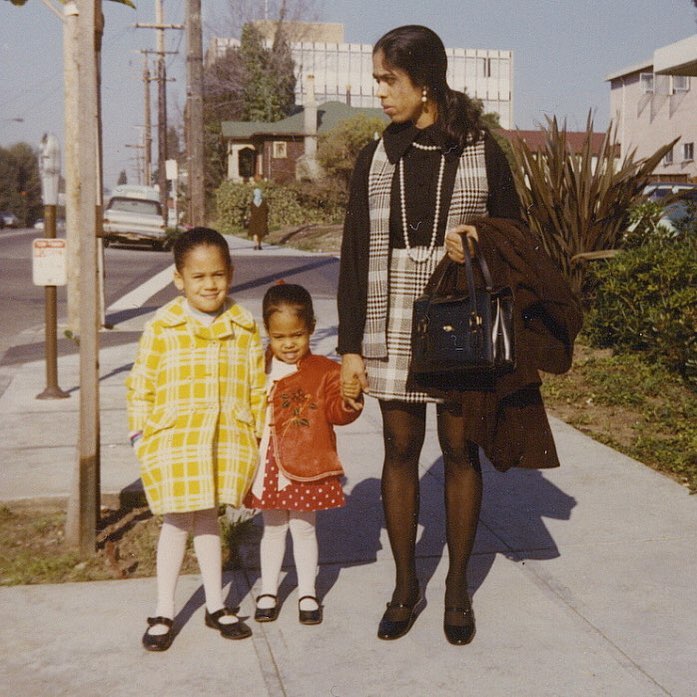By Barbra Nakiwala
Kamala Harris’s recent reflection on her upbringing as a middle-class child in America has sparked heated debate online. While she emphasized the struggles her family faced, particularly her mother’s long journey to homeownership, critics quickly challenged the authenticity of her story. This controversy highlights the complicated nature of personal narratives in politics and the fine line between genuine experience and public perception.
In a recent post on X (formerly Twitter), Kamala Harris shared a personal story from her childhood that resonated with many Americans. She spoke of her upbringing in a middle-class household, the financial hardships her mother faced, and the decade-long struggle to save enough money to buy a home. Harris recalled the excitement of finally owning a house, a milestone that she and her family celebrated when she was a teenager.

Her post was a poignant reminder of the challenges many middle-class families face, particularly in a time when the cost of living continues to rise. Harris’s intention was clear: to connect with voters by sharing a relatable story and to underscore her commitment to lowering living costs if elected President.
However, the response to her post was far from unanimous. One particular critic accused Harris of fabricating her middle-class narrative, pointing out inconsistencies in her account. This individual claimed that Harris’s family was far from struggling, citing her parents’ advanced degrees, substantial family wealth, and international travels during her childhood as evidence that her upbringing was privileged, not middle-class.
The critic went so far as to mention a $20,000 transfer to a Canadian bank when Harris’s family moved from California to Montreal in 1976, a sum equivalent to over $100,000 today when adjusted for inflation. They also noted Harris’s parents’ prestigious backgrounds—her father’s family owning a large pimento farm in Jamaica and her mother’s high-caste Brahmin heritage, coupled with a government official grandfather in Zambia. This detailed rebuttal attempted to dismantle Harris’s portrayal of her family as part of the American middle class, painting a picture of privilege instead.

The truth likely lies somewhere in between. It’s important to recognize that the concept of “middle class” is fluid and subjective. For Harris, the challenges her family faced might have felt very real, even if they don’t fit neatly into the typical middle-class mold. Owning a home, for example, can be a monumental achievement for many families, regardless of their overall wealth or background. The story she shared reflects a personal experience, one that she believes shaped her perspective and fuels her political ambitions.
On the other hand, public figures like Harris must also acknowledge that their narratives will be scrutinized, particularly in today’s hyper-connected and information-rich society. Any perceived discrepancy between their words and their documented history can quickly become fodder for criticism. In this case, Harris’s portrayal of her upbringing as modest and her subsequent commitment to economic policies aimed at easing the burden on middle-class families may seem disingenuous to those who view her background as far more privileged.

This incident serves as a reminder of the challenges politicians face when they share personal stories to connect with voters. While these narratives can be powerful tools for building empathy and trust, they must be grounded in truth—at least as it is perceived by the public. Otherwise, they risk alienating the very people they aim to inspire.
As the debate around Harris’s upbringing continues, it’s worth reflecting on the broader issue of authenticity in politics. Voters deserve leaders who are honest about their experiences and who understand the realities faced by everyday Americans. At the same time, it’s essential to acknowledge that every individual’s story is complex, shaped by a myriad of factors that may not always align neatly with public expectations.
In the end, whether Kamala Harris’s story is seen as a sincere reflection of her past or a calculated political move will depend on the perspective of each voter. What remains clear, however, is that personal narratives in politics are powerful—and that their power comes with great responsibility.







